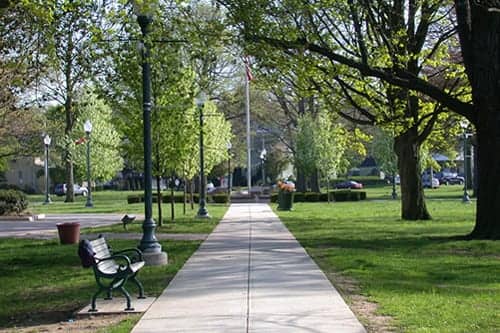New research published in Environmental Health Perspectives shows that the loss in cognitive functions expected as part of the aging process is slightly slower in people who live in greener neighborhoods.
Researchers performed a 10-year follow-up of 6,500 people aged 45 to 68 in the UK. At three different time points during the course of the study, participants completed a battery of cognitive tests that assessed their verbal and mathematical reasoning, verbal fluency and short-term memory, as well as the decline in these functions. Neighborhood greenspace for each participant was estimated using satellite images.
“Our data show that the decline in the cognitive score after the 10-year follow up was 4.6% smaller in participants living in greener neighborhoods. Interestingly enough, the observed associations were stronger among women, which makes us think that these relations might be modified by gender,” said author Carmen de Keijzer of Barcelona Institute for Global Health (ISGlobal).
“Although the differences in cognitive decline observed in our study are modest at individual level, they become much more significant if we consider these findings at population level,” said Payam Dadvand, ISGlobal. “If confirmed by future studies, our results may provide an evidence base for implementing targeted interventions aimed at decelerating cognitive decline in older adults residing in urban areas and hence improving their quality of life.”










